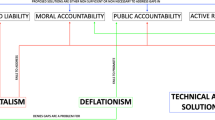Abstract:
The design of control systems and human–machine interfaces in the field of complex and safety-critical environments remains today an open issue, in spite of the high technological evolution of the last decades. The increasing use of automation has improved efficiency, safety and ease of operations but, at the same time, it has complicated operators’ situation awareness and has changed the nature of their possible errors. The research activity described in this paper is an attempt to develop a methodological framework to support designers of control systems and human–machine interfaces. In particular, it focuses on the need for a deeply recursive approach related to the implementation of the systemic and human aspects of the design process of a human–machine system, intended as a Joint Cognitive System. A validating case study has been performed, based on the full application of the framework on the control of the turbine/alternator system of a thermoelectric power plant in northern Italy.
Similar content being viewed by others
Author information
Authors and Affiliations
Additional information
Correspondence and offprint requests to: M. Piccini, Politecnico di Torino Dipartimento di Energetica, C.so Duca degli Abruzzi 24, 10129 Turin, Italy. Tel.: +39 011 564 4413; Fax: +39 011 564 4499; Email: mipiccin@polito.it
Rights and permissions
About this article
Cite this article
Piccini, M. Human Factors in the Design of Supervisory Control Systems and Human–Machine Interfaces for Highly Automated Complex Systems . Cognition Tech Work 4, 256–271 (2002). https://doi.org/10.1007/s101110200024
Issue Date:
DOI: https://doi.org/10.1007/s101110200024




